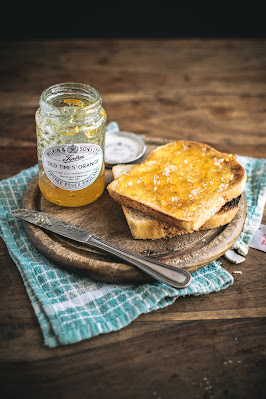The significance in little things
Relationships are as fascinating as they can be fragile and fraught. Between the mere mortals that we humans are, the fine art of communication and commitment can challenge even the most skilled and careful among us. For this reason, I love the stories Joanna Trollope weaves in her books. They are always and inevitably about the trials and triumphs or failures of connections among and between people.
Trollope, a fifth-generation niece of Anthony Trollope, writes about the English, a culture and a people that are my heritage. I like being immersed in families for whom a cup of tea and cold-buttered toast with marmalade can be breakfast. The characters tend to be ordinary contemporary individuals, living their lives while trying to navigate a change of some kind, sometimes introduced by a new person in the village or in the family, and sometimes by a change in circumstance — illness, aging, birth or death of a pivotal person relative to the protagonist(s).
Put like that, it sounds so much like anyone’s ordinary everyday life that it’s a wonder Trollope’s stories hold any interest. But, of course, it is precisely because of their ordinariness that they are so interesting, so readable. My own ordinariness is reflected in the story of the characters and I can learn from their response to what they experience. [Note: Trollope appeared on a 1994 edition of Desert Island Discs, in which she remarked that men often suggested her books were trivial, to which she liked to respond: "It is a grave mistake to think there is more significance in great things than in little things", paraphrasing Virginia Woolf.]
I most recently enjoyed Other People’s Children (1998), which is about marriage and divorce and children and parents, more specifically, step-children and step-parents. Trollope’s writing takes us right into the heart of the stresses and strains of relationships wearing thin, of new connections being spun from a single thread of interest, of hearts broken by the inability to move forward in a family’s new configuration, and of lives put back together through the sheer force of a persistent and well rooted love.
While “only” fiction, Trollope’s writing offers insight into the human condition and the bounty and challenges we experience when we embark on relationships with each other. Below are excerpted three such insights I took from Other People’s Children — not necessarily new ideas, but well expressed and, for that reason alone, worth noting:
The notion of a parent as a foundational ally in one’s life: “…When her own mother had died, she had felt a decent sorrow appropriate to the small affection and vast requirement for mutual tolerance that had existed between them, but certainly no depth of grief. When her father died, she knew it would be different and she would experience all the intensity of losing an extraordinary ally while having, for the first time in her life, no one to stand between her and the stars.” (p. 76)
The idea that the past can be impossible to overcome: “…We’ve got to put the past behind us and try…you can’t alter the past, but because of the past, everything that comes after is altered. Something happens, a deed is done, and the consequences just go rolling on…” (p. 227)
The extraordinary feature of romantic love: “…she had to learn to love things in him that she’d never even countenance putting up with in someone else…” (p. 249)
Some writers' stories take me out of myself and into a world unknown to me; Trollope's plop me right into the vagaries and wonders of what I know well and hold most dear: relationships between ordinary people making their way through their everyday lives in the best way they know how.
———
Land acknowledgement: I respectfully recognize that I live on the original lands of Anishinaabe, Cree, Oji-Cree, Dakota and Dene peoples, and on the homeland of the Métis Nation.




Margaret Lawrence faced the same criticism (triviality) and
ReplyDeleteEloquently defended herself
This is such a lovely essay, Amanda.
ReplyDeleteAnd now I want two pieces of toast, with that exact orange marmalade.